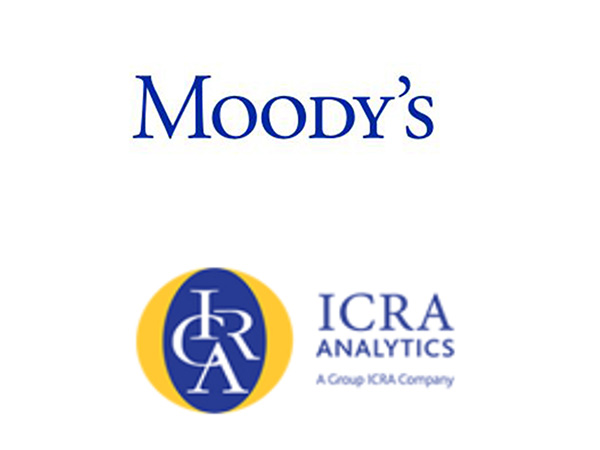
New Delhi: India is experiencing a transformative wave of investments in its infrastructure, driven by strong economic growth and robust government support. According to recent reports from Moody's Ratings and ICRA, the country is set to witness substantial capital inflows into both the energy and transportation sectors, reinforcing its commitment to a sustainable and well-connected future.
Moody's Ratings has highlighted the immense financial commitment required for India's energy transition. The nation aims to significantly expand its renewable energy capacity, targeting an impressive 500 gigawatts (GW) by 2030.
To achieve this, Moody's estimates that an investment ranging from USD 190 billion to USD 215 billion will be necessary over the next seven years.
Furthermore, an additional USD 150 billion to USD 170 billion will be required for upgrades in electricity transmission, distribution, and energy storage.
Abhishek Tyagi, Vice President and Senior Credit Officer at Moody's, said, "The sizeable pipeline of announced projects will keep the financial leverage of renewable power companies rated by Moody's high over the next 2-3 years, a credit negative, but the leverage of government-related issuers will remain moderate over the same period, given their relatively strong balance sheets."
He also noted that while coal will continue to play a significant role in electricity generation over the next decade, the robust pipeline of projects and stable government policies will support the credit quality of energy companies, particularly those related to the government, which will maintain moderate leverage due to strong balance sheets.
"We expect the strong growth in India's renewable energy capacity to continue, although coal will remain a major source of electricity generation over the next 8-10 years," Tyagi said.
The progress in renewable energy is further underscored by the increase in its share within India's power capacity mix, which reached around 43 per cent by the end of fiscal 2024.
The sustained policy support is crucial for India to achieve its 2030 transition targets and the ambitious goal of net-zero emissions by 2070.
ICRA, an affiliate of Moody's in India, has forecasted a substantial rise in investments across various transportation infrastructures, including roads, ports, and airports.
This surge is expected to be fueled by solid government backing, escalating capital expenditures, and a broad pipeline of upcoming projects.
The Ministry of Roads, Transport and Highways (MoRTH) has significantly increased its budgetary allocation for the road sector, which now stands at Rs 2.7 lac crore for fiscal 2025, marking an over eightfold increase in the past decade with a 22 per cent compound annual growth rate.
Girishkumar Kadam, Senior Vice President and Group Head of Corporate Ratings at ICRA, predicted that road construction would grow by 5 per cent to 8 per cent, reaching 12,500 km to 13,000 km in fiscal 2025, following a robust 20 per cent expansion in fiscal 2024.
Kadam said, "India's road construction will likely grow 5 per cent-8 per cent to 12,500 km-13,000 km in fiscal 2025, following a robust expansion of around 20 per cent in fiscal 2024. This pace of execution will be supported by a healthy pipeline of projects, increased government capital outlay and greater focus on project completion by MoRTH."
India's maritime infrastructure is also set for substantial growth under the Maritime India Vision 2030. The plan aims to enhance port capacity and infrastructure over the next decade, though it may lead to increased competition and pricing pressures due to potential supply-demand mismatches in some regions.
ICRA anticipates a 6 per cent to 8 per cent increase in cargo volumes in the current fiscal year, driven by healthy growth in the container and coal segments, despite potential challenges from slower global trade and geopolitical tensions.
Airport infrastructure is another critical area of focus, with anticipated investments of Rs 55,000 crore to Rs 60,000 crore over the next three to four years.
These investments will fund projects like new greenfield airports, brownfield developments, and expansions of existing airports under the Airports Authority of India.
This development is expected to boost passenger traffic by 8 per cent to 11 per cent, reaching around 407 million to 418 million passengers in fiscal 2025, supported by increased leisure and business travel, improved connectivity, and a rise in international travel.
Additionally, ICRA foresees significant investments in data centers, driven by rapid digitalization and favorable policy measures.
An estimated Rs 1.5 lac crore will be invested in this sector over the next five to six years. However, ICRA cautions that the addition of large capacities and growing competition could moderate returns for companies in the sector.